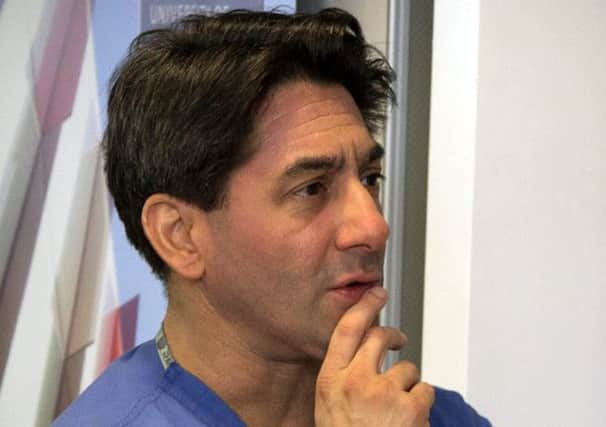The scientist getting down to the heart of the matter


IT’S buried inside us, at the centre of our physical being, and yet the heart is everywhere – especially in our language.
We can eat a hearty meal, we may speak from the heart, give heartfelt praise or not have the heart to impart bad news. We can describe someone as cold or warm-hearted, and might at some stage be heartbroken. Going back to the ancient Egyptians and Greeks, it was somehow understood by societies that the heart was our most crucial organ and it was revered for its special significance.
Advertisement
Hide AdAdvertisement
Hide AdOver centuries, as ideas developed about how the heart worked and what its function was, it had already come to be represented in art and literature as a shining beacon in the human breast.
Before he ever wanted to train as a doctor, the teenage Robin Choudhury – then a pupil at Leeds Grammar School – was enthralled by the many historical representations of the heart and the role intuition had played in early studies, by both scientists and polymaths such as Leonardo da Vinci.
Leonardo understood a lot about what Prof Choudhury calls “the heart’s exquisite elegance of design”, but –smart though he was – didn’t twig how the blood circulated.
When went off to study medicine at Oxford, Robin Choudhury already knew what his speciality would become. Today he is professor of cardiovascular medicine at the university and consultant cardiologist at the city’s John Radcliffe Hospital, as well as director of the Oxford Acute Vascular Imaging Centre.
Advertisement
Hide AdAdvertisement
Hide AdThis is a state-of-the-art unit comprising the latest technology in MRI scanning with its own small intensive care unit, so that patients can be scanned in the very early stages after heart attack or stroke and receive all the specialist care needed while 3D imaging gives specialists more vital data about their condition.
Prof Choudhury is also on a mission to further the public understanding of cardiac matters and has filled a sizeable tent or two at music festivals, where organisers have realised that revellers have an appetite for more than just bands and burgers.
He relishes the chance to interest the wider public in his work, loves to discuss the development of ideas about the heart through time and encourage understanding of what’s going on in the scientific world – he manages to describe blood vessels as “Teflon-coated tubes” without sounding patronising.
“Ancient civilisations didn’t have to know much about the heart to figure out its importance. It’s the only organ, apart from the bladder and bowel, that moves on its own, and it responds to stimuli – beating faster at times of stress or passion. Every civilisation has known it without science necessarily telling them so.”
Advertisement
Hide AdAdvertisement
Hide AdAt a Harrogate International Festivals event this week, the professor will take to the stage and discuss the heart in art, science and society in a series of three talks by different experts based around “happiness.
While there is no particular body of evidence saying that being happy is good for your heart per se, it is true to say that depression is categorically bad for it. Looking after our general wellbeing and avoiding being downhearted (or becoming chronically sleep deprived) is demonstrably good.
Does understanding of the heart in the context of history and art as well as science make him a better doctor? “It’s important to appreciate that whatever is your model of the moment, it is likely to be, if not wrong, at least incomplete. So, by knowing the history of the field in which you work you learn about your own limitations. It teaches you a bit of scientific humility – which is essential.”
• The Salon North event on Happiness is on January 29 at Harrogate’s Masonic Hall. For more information visit www.harrogateinternationalfestivals.com